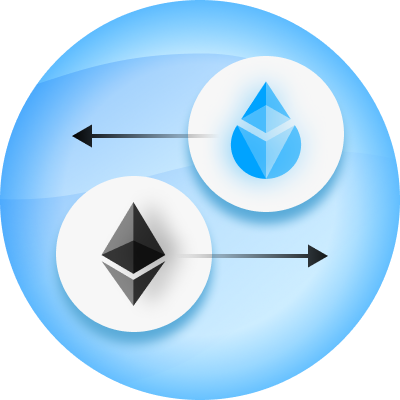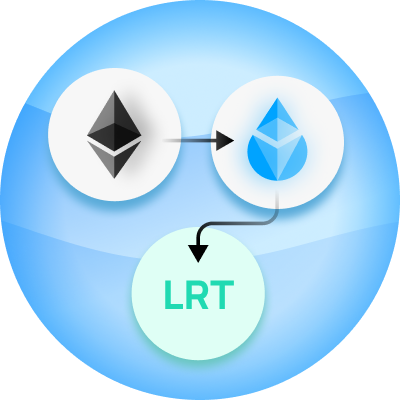One of the core benefits of liquid staking is the ability to use staked tokens while still earning staking rewards. Both stETH and wstETH are integrated into a wide range of DeFi protocols across Ethereum and supported chains.
Possible DeFi use-cases:

One of the most common DeFi integrations for stETH and wstETH is lending and borrowing on platforms like Aave. In this use case, users can deposit their stETH or wstETH as collateral to borrow other tokens such as stablecoins or ETH. Alternatively, users can lend their tokens to earn third-party rewards on top of the staking rewards already accruing from the Lido protocol.

In leveraged staking, stETH is used as collateral to borrow ETH, which is then staked again, creating a loop that amplifies staking growth. While leveraged staking can enhance rewards, it also introduces increased liquidation risk due to price volatility or shifts in protocol parameters.

can also be used in structured DeFi products designed to optimize or maximize staking rewards. These products may include auto-compounding vaults, fixed yield, or variable yield instruments. These mechanisms are usually chosen by users seeking more control over the way their rewards are generated or distributed.

Through restaking protocols, users can commit their stETH/wstETH as collateral and receive LRTs (liquid restaking tokens) with third-party rewards, which may include protocol points, tokens, or additional rewards.
Using stETH and wstETH in DeFi
When interacting with DeFi platforms, it’s important to understand the difference between stETH and wstETH. stETH is a rebasing token - its balance increases daily to reflect staking rewards. However, not all DeFi protocols can support rebasing behavior. In such cases, wstETH is used instead. It wraps stETH into a non-rebasing format, keeping the token balance constant while the value increases over time.
Many platforms support wstETH as the preferred format for integrations. Users can freely convert between the two formats using the Lido UI or directly through supported DeFi apps. Before using any specific DeFi product, it’s recommended to verify which token format is supported. For an up-to-date overview of supported integrations, token formats, and network availability, refer to the DeFi app itself or to the Lido Ecosystem page.